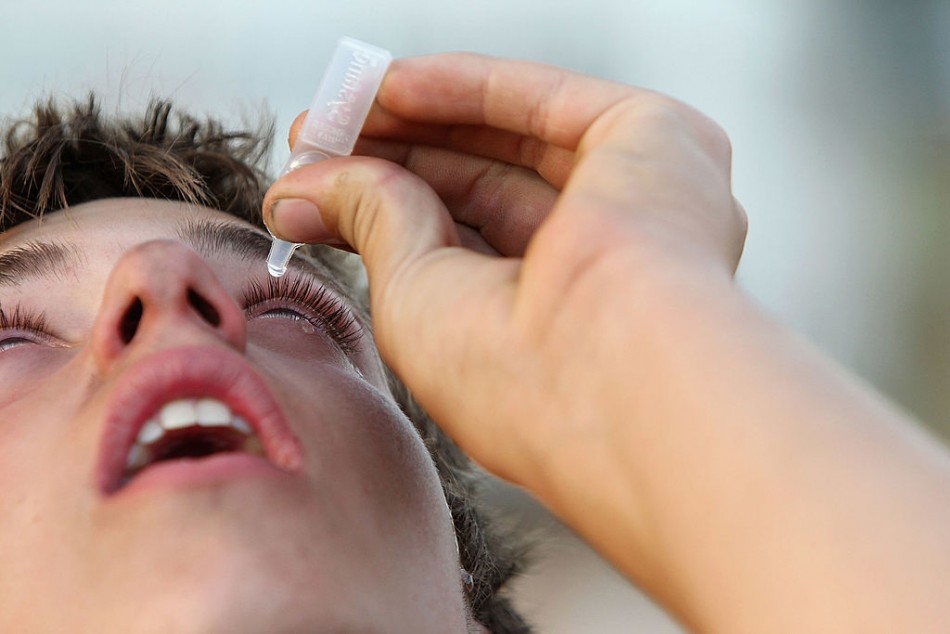FDA Issues Safety Warning Over Unapproved Amniotic Fluid Eye Drops for Dry Eye Disease

The FDA recently released a safety warning regarding amniotic fluid eye drops that are being falsely advertised as a cure for dry eye disease.
This is part of the FDA's ongoing efforts to combat the sale of unapproved stem cell products.
The safety warning refers back to previous letters sent to the makers of StimulEyes and Regener-Eyes, in which they were warned that their products would require a valid Biologics License Application (BLA) or investigational new drug (IND) application to continue being sold.
FDA Safety Warning for Amniotic Fluid Eye Drops
The FDA has recently alerted the public, including healthcare practitioners and patients, to a concerning trend in which manufacturers promote and distribute amniotic fluid eye drops as a treatment for a range of eye ailments without obtaining the necessary pre-market review and approval from the agency.
This means that these products have yet to undergo the rigorous testing and evaluation required by the FDA to ensure their safety and effectiveness for use.
While dry eye disease can be a frustrating and uncomfortable condition, there are currently no FDA-approved amniotic fluid eye drops for its treatment, mitigation, or cure.
To ensure the safety and efficacy of new drugs, the FDA requires manufacturers to undergo a rigorous review process, including submitting data from clinical trials and other tests demonstrating the drug's safety and effectiveness for its intended use.
In the case of amniotic fluid eye drops, the FDA requires manufacturers to obtain an investigational new drug application (IND) before these products can be offered to patients.
However, in the case of the amniotic fluid eye drops being marketed without FDA approval, the agency has no information about their production. There is no guarantee that they are safe or effective for treating any ailment.
According to MedPage Today, this is not the first time the FDA has taken action against the manufacturers of these amniotic fluid eye drops.
In late 2022, the agency issued two untitled letters to manufacturers, warning them that their products were being marketed without FDA approval and raising concerns about their safety and effectiveness.
It is unclear if the companies that manufacture these products have made any changes to their products or marketing strategies in response to the FDA's earlier warnings.
Read Also: Dr. Fauci Admits COVID-19 Response Was Flawed, Denies Involvement in School Shutdowns
What Is Dry Eye Disease?
Dry eye disease is a common problem that affects many older adults, and it occurs when there is an imbalance between tear production and drainage.
According to the American Optometric Association, tears help to lubricate the eye, clear away foreign particles, and prevent infection.
When tears are not produced or drained properly, individuals may experience symptoms such as irritated, gritty, or burning eyes, as well as blurred vision and light sensitivity.
Dry eyes can have many causes, including age, medications, medical conditions, environmental factors, and gender.
To manage and treat dry eyes, a number of approaches can be used, including adding tears with over-the-counter artificial tear solutions, conserving tears, increasing tear production, and treating inflammation of the eyelids or eye surface that contributes to dry eyes.
One concerning issue is that some companies are marketing amniotic fluid eye drops as a treatment for dry eye disease, among other conditions, without testing their products in controlled clinical trials.
The safety and effectiveness of these amniotic fluid products have not been established for treating individuals with dry eye disease or any other condition.
This is a problem because patients may use these products without knowing the potential risks and benefits.
Leigh Turner, Ph.D., who heads the bioethics program at the University of California, Irvine, has criticized this commercial activity, stating that companies selling untested products to treat dry eye disease are putting patients at risk.
Additionally, the Regener-Eyes CEO, Randall Harrell, MD, and M2 Biologics have yet to respond to requests for comments on the safety and efficacy of their products.
Related Article: American Samoa Issues Public Health Emergency Due To Measles Outbreak in Children, Prompting School Closures
© 2024 ParentHerald.com All rights reserved. Do not reproduce without permission.
